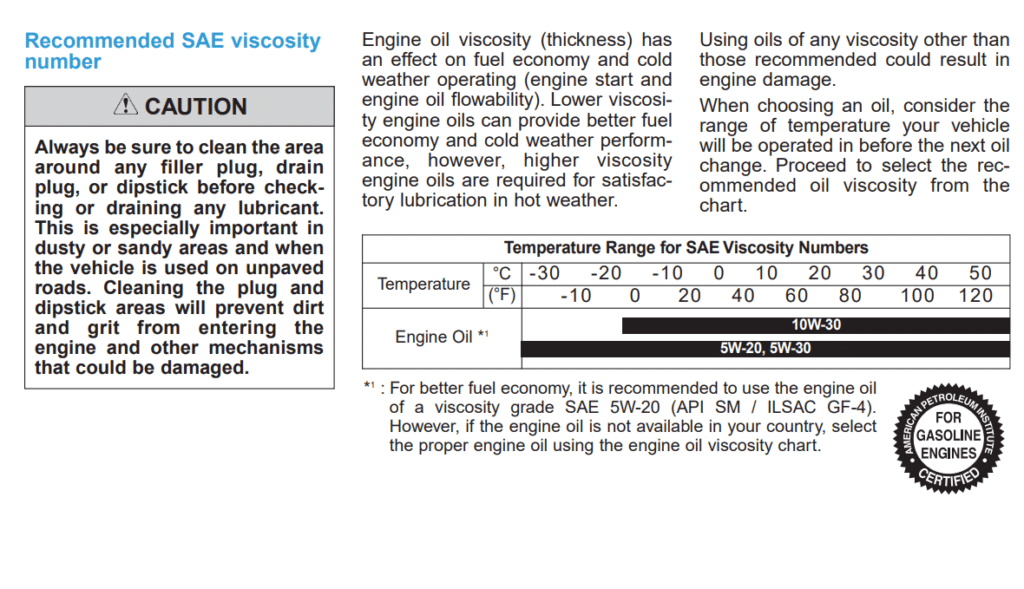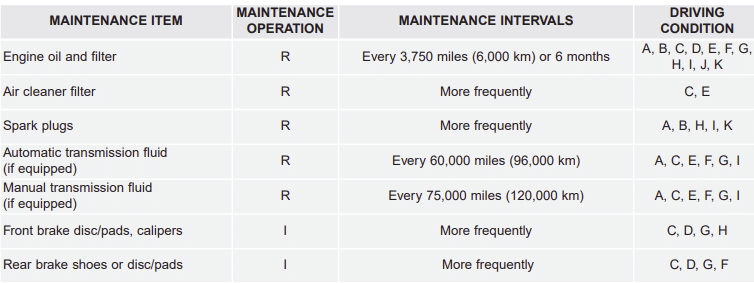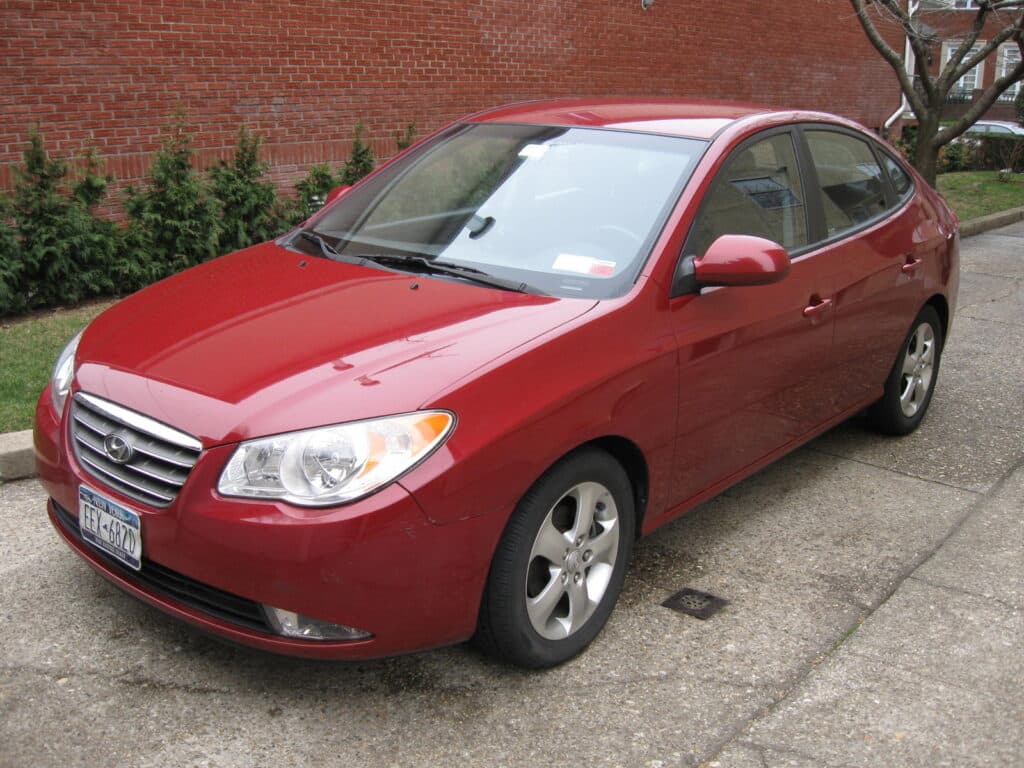As a car owner, I know firsthand how important it is to use the right oil type for your vehicle. Not only does it ensure optimal performance, but it also helps protect the engine and prolong its lifespan. I’ve found that the right oil can make a world of difference in the way my car runs, and that’s why I’m passionate about sharing my knowledge with other car enthusiasts.
In this article, I will focus on the 2017 Hyundai Elantra, a popular compact sedan offering impressive fuel efficiency and a comfortable ride.
The 2017 Hyundai Elantra comes with three different engine options: a 1.4-liter turbocharged four-cylinder, a 1.6-liter turbocharged four-cylinder, and a 2.0-liter naturally aspirated four-cylinder. Each of these engines has its own specific oil requirements to ensure the best performance and longevity.
In the following sections, I’ll dive deeper into the importance of oil viscosity, the official owner’s manual recommendations, engine-specific oil recommendations and capacities, and other factors to consider when choosing the right oil for your 2017 Hyundai Elantra. So, let’s get started and learn how to give your car the care it deserves.
What Kind Of Oil Does A 2017 Hyundai Elantra Take?
The recommended oil viscosity grade for the 2017 Hyundai Elantra is SAE 5W-20 (API SM / ILSAC GF-4). This oil viscosity has been chosen to ensure better fuel economy, as it provides an optimal balance between engine protection and performance. However, as I mentioned in the previous section, the 1.4L and 1.6L engines require 5W-30 oil, so it’s essential to double-check which engine you have and use the appropriate oil type.
Another crucial factor to consider when choosing the right oil for your 2017 Hyundai Elantra is the temperature range in which your vehicle will be operated before the next oil change. Temperature greatly influences the viscosity of the oil, and using the wrong viscosity for the prevailing climate conditions can lead to decreased engine performance and potential engine damage.
For instance, lower viscosity oils, like 5W-20, perform better in cold weather, as they can flow more easily at lower temperatures, ensuring proper engine lubrication during cold starts. On the other hand, higher-viscosity oils may be required for satisfactory lubrication in hot weather. Therefore, it’s vital to consider your local climate and the typical temperature range your vehicle will be exposed to when selecting the right oil for your Elantra.

As I mentioned earlier, the 2017 Hyundai Elantra offers three different engine options, and each one has specific oil requirements. Let me break it down for you so you can easily identify which oil type you need for your Elantra based on its engine:
For the 1.4L and 1.6L four-cylinder engines, Hyundai recommends using 5W-30 oil. This particular oil viscosity works well with these engines as it provides a balance between fuel efficiency, engine protection, and cold-start performance.
On the other hand, if you have a 2.0L four-cylinder engine, Hyundai suggests using 5W-20 oil. This slightly thinner oil is ideal for the 2.0L engine as it further improves fuel economy without sacrificing engine protection, especially in colder climates.
Now let’s talk about oil capacities. When it’s time to change your engine oil, it’s essential to know the correct amount of oil required for your specific engine type. Here are the oil capacities with a dry filter for each engine option in the 2017 Hyundai Elantra:
- For the 1.4L engine, you’ll need 4.4 quarts of oil.
- If you have the 1.6L engine, it requires 4.8 quarts of oil.
- Lastly, the 2.0L engine has an oil capacity of 4.2 quarts.
Understanding Engine Oil Viscosity
To make an informed decision about the right oil for your 2017 Hyundai Elantra, it’s essential to understand the concept of engine oil viscosity and how it affects your vehicle’s performance. In this section, I’ll explain what viscosity is, how temperature affects it, and why using the correct viscosity is crucial for your car.
Viscosity refers to the thickness or resistance to flow of a fluid. In the context of engine oil, viscosity determines how easily the oil flows through the engine and provides lubrication to its moving parts. The right oil viscosity plays a significant role in fuel economy and cold weather performance. Thinner, lower-viscosity oils generally offer better fuel economy because they create less resistance within the engine, allowing it to run more efficiently. In cold weather, low-viscosity oils can flow more easily, ensuring proper lubrication and reducing engine wear during cold starts.
The viscosity of the oil is greatly affected by temperature. When the temperature drops, oil thickens, and its ability to properly lubricate the engine may be hindered. On the other hand, when the temperature rises, oil thins out, and its protective qualities may be compromised, leading to increased engine wear. To address this issue, multi-grade oils such as 5W-20 and 5W-30 have been developed to maintain their protective properties and flow smoothly in varying temperatures.
Using the correct viscosity for your vehicle is vital for several reasons. First, it ensures that your engine remains well-lubricated and protected, which can prolong its life and prevent costly repairs. Second, the right viscosity can enhance fuel economy, saving you money at the pump. Finally, using the appropriate oil viscosity for your car, taking into account the engine type and local climate conditions helps ensure optimal performance and a smoother driving experience.
Does A 2017 Hyundai Elantra Use Synthetic Oil?
The 2017 Hyundai Elantra is designed to use full-synthetic motor oil, which offers several advantages over conventional oil. In this section, I will discuss the benefits of full-synthetic oil and its compatibility with the 2017 Hyundai Elantra.
Full-synthetic oil provides several benefits compared to conventional motor oil. Some of the most notable advantages include:
- Enhanced engine protection: Full-synthetic oil offers superior lubrication and protection against wear, as it is engineered to maintain its properties under extreme temperatures and conditions.
- Improved fuel economy: Since synthetic oil generally has a lower viscosity, it can help reduce friction within the engine, leading to better fuel efficiency.
- Longer oil change intervals: Full-synthetic oils are more resistant to breakdown and oxidation, allowing for longer intervals between oil changes, which can save you time and money.
- Better performance in extreme temperatures: Synthetic oils are designed to maintain their protective qualities and flow more easily in both cold and hot conditions, ensuring consistent performance and protection in various climates.
For the 2017 Hyundai Elantra, it is recommended to use full-synthetic motor oil. The engine requires 5W-30 for the 1.4L and 1.6L four-cylinder engines and 5W-20 for the 2.0L four-cylinder engine. It is important to choose a full-synthetic oil that meets the API SM / ILSAC GF-4 specifications listed in the owner’s manual. Utilizing high-quality full-synthetic oil in your 2017 Hyundai Elantra can provide improved engine protection, fuel economy, and overall performance.
Factors to Consider When Choosing Oil
Selecting the right oil for your 2017 Hyundai Elantra involves more than just following the recommendations from the owner’s manual. There are additional factors to consider, such as climate, driving conditions, and the age of your vehicle. In this section, I will discuss these factors and their impact on your oil choice.

Climate and driving conditions:
- Extreme temperatures: If you live in an area with extremely hot or cold temperatures, you may need to use an oil with a viscosity specifically designed to handle those conditions. For example, in extremely cold climates, a lower-viscosity oil will flow more easily and provide better protection during cold starts.
- Frequent short trips: If you often take short trips where the engine doesn’t have enough time to warm up, you may want to consider using an oil with a lower viscosity to ensure proper lubrication during these short drives.
- Heavy traffic: If you frequently drive in stop-and-go traffic, your engine may experience more stress and heat, making it essential to use an oil with excellent heat resistance and protective qualities.
Mileage and engine wear:
- High-mileage oils: If your 2017 Hyundai Elantra has a high mileage, you may want to consider using a high-mileage oil specifically designed to help restore and protect older engines. These oils often contain additives that can reduce oil consumption, minimize leaks, and improve overall engine performance.
- Oil additives: In some cases, adding specific oil additives to your engine oil can provide extra protection and performance enhancements. These additives can help reduce friction, prevent sludge buildup, and improve fuel efficiency. However, using additives cautiously and following the manufacturer’s instructions is essential, as improper use can sometimes cause more harm than good.
Changing Your Engine Oil: Frequency and Best Practices
Regularly changing your engine oil is an essential part of vehicle maintenance, ensuring that your engine stays well-lubricated and protected. In this section, I will discuss the recommended oil change interval for the 2017 Hyundai Elantra, factors affecting oil change frequency, signs that you need an oil change, and the pros and cons of DIY vs. professional oil changes.
The general recommendation for oil change intervals can vary depending on the vehicle, driving conditions, and the oil type used. For the 2017 Hyundai Elantra manufacturer recommends changing your oil every 3,750 to 7,500 miles or every 6 months, whichever comes first.

Factors affecting oil change frequency:
- Driving conditions: Frequent short trips, stop-and-go traffic, and driving in dusty or extremely hot conditions can all cause your engine oil to degrade faster, requiring more frequent oil changes.
- Vehicle age: As your vehicle ages and accumulates more miles, its engine may experience more wear, which can lead to increased oil consumption and the need for more frequent oil changes.
- Oil type used: Conventional oil typically requires more frequent changes compared to full-synthetic oil, which can last longer due to its resistance to breakdown and oxidation.
Some common indicators that it’s time for an oil change include a decrease in fuel efficiency, an increase in engine noise, or the presence of an oil change reminder on your dashboard. Additionally, you can check the oil level and condition by using the dipstick. If the oil appears dark and dirty or the level is low, it’s likely time for an oil change.
Changing your engine oil can be done at home or by a professional mechanic. There are pros and cons to each option:
- DIY oil changes can save you money and give you a sense of accomplishment. However, they can be time-consuming, messy, and require a certain level of mechanical knowledge.
- Professional oil changes are more convenient and ensure that the job is done correctly. Additionally, many service centers will also perform a multi-point inspection of your vehicle, which can help identify any potential issues. However, professional oil changes can be more expensive than doing it yourself.
Can I Use 5w30 Instead Of 5w20 In My Hyundai Elantra?
While it is always best to follow the manufacturer’s recommendation for engine oil, using 5W-30 instead of 5W-20 in your Hyundai Elantra should not cause significant harm to the engine, especially if it is a one-time occurrence.
For optimal engine performance, fuel economy, and protection, it is advisable to use the recommended viscosity of oil, specifically for Elantra cars with a 2.0L four-cylinder engine. The use of 5W-20 oil viscosity is highly recommended.
Consistently using the incorrect oil viscosity may lead to reduced fuel efficiency and potentially affect engine performance over time. It is advisable to use the recommended oil type for your vehicle to ensure optimal performance and longevity.
Conclusion
Selecting the appropriate engine oil for your 2017 Hyundai Elantra is crucial to sustain your vehicle’s performance and maximizing its efficiency in the long run.
It is highly important to utilize the recommended oil type for your 2017 Hyundai Elantra due to several reasons. Firstly, it guarantees that your engine stays well-lubricated and safeguarded, reducing the risk of expensive repairs and prolonging the life of your vehicle.
Secondly, selecting the suitable oil viscosity and type, as advised by the manufacturer, can increase fuel economy, saving you money on gas. Lastly, the appropriate oil assures optimal performance, resulting in a smoother driving experience and upholding the dependability of your car.
To achieve top-notch performance, engine protection, and longevity for your 2017 Hyundai Elantra, it’s important to factor in climate, driving conditions, and vehicle age when selecting engine oil. Regularly changing your oil as needed is also key. Whether you prefer DIY oil changes or entrust your vehicle’s upkeep to professional mechanics, keeping up with maintenance will help you maximize your investment and keep your Elantra running seamlessly for years.










